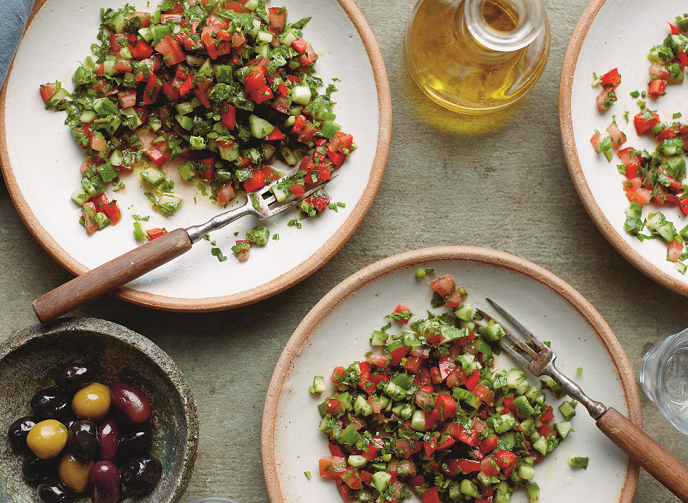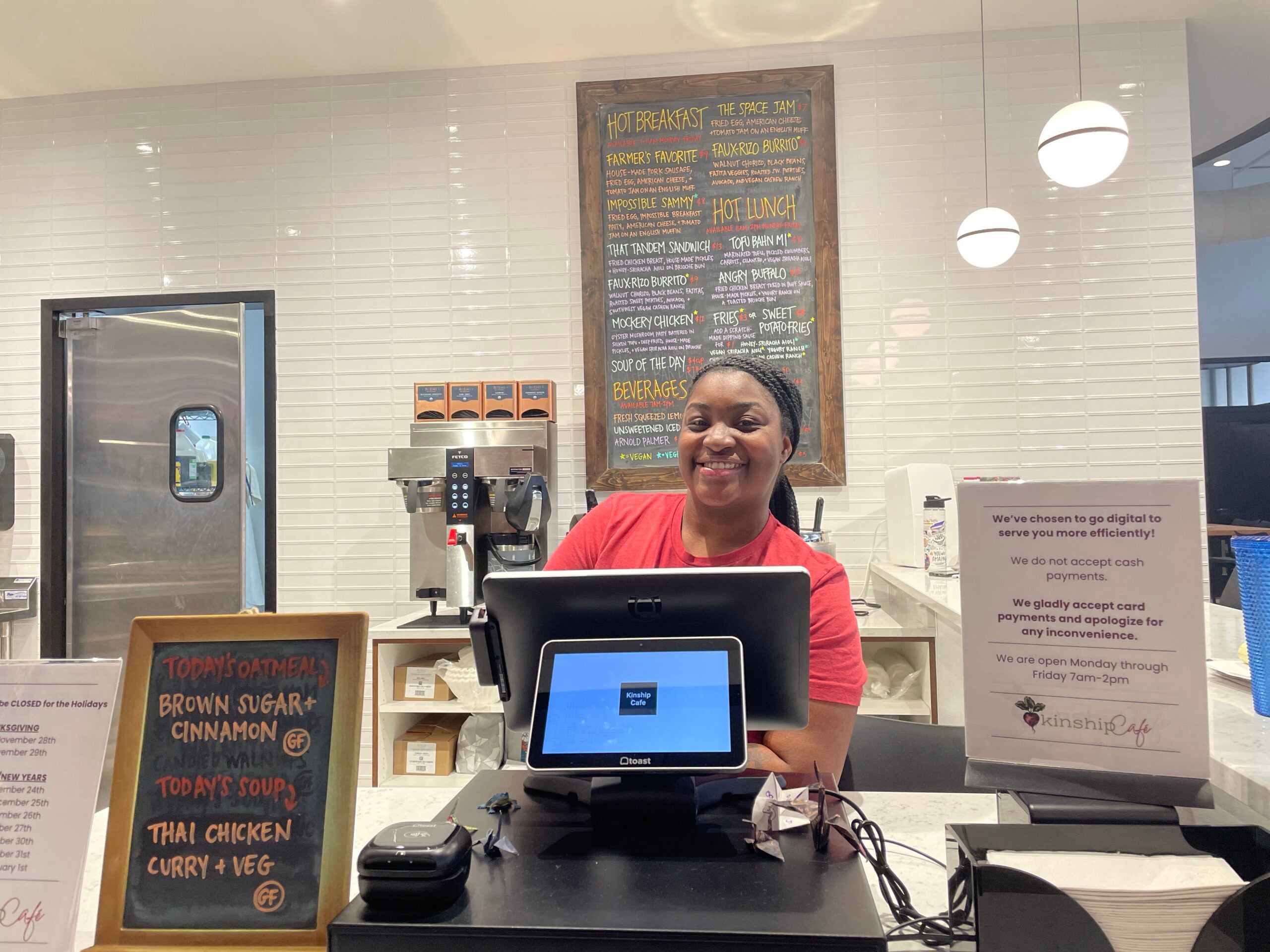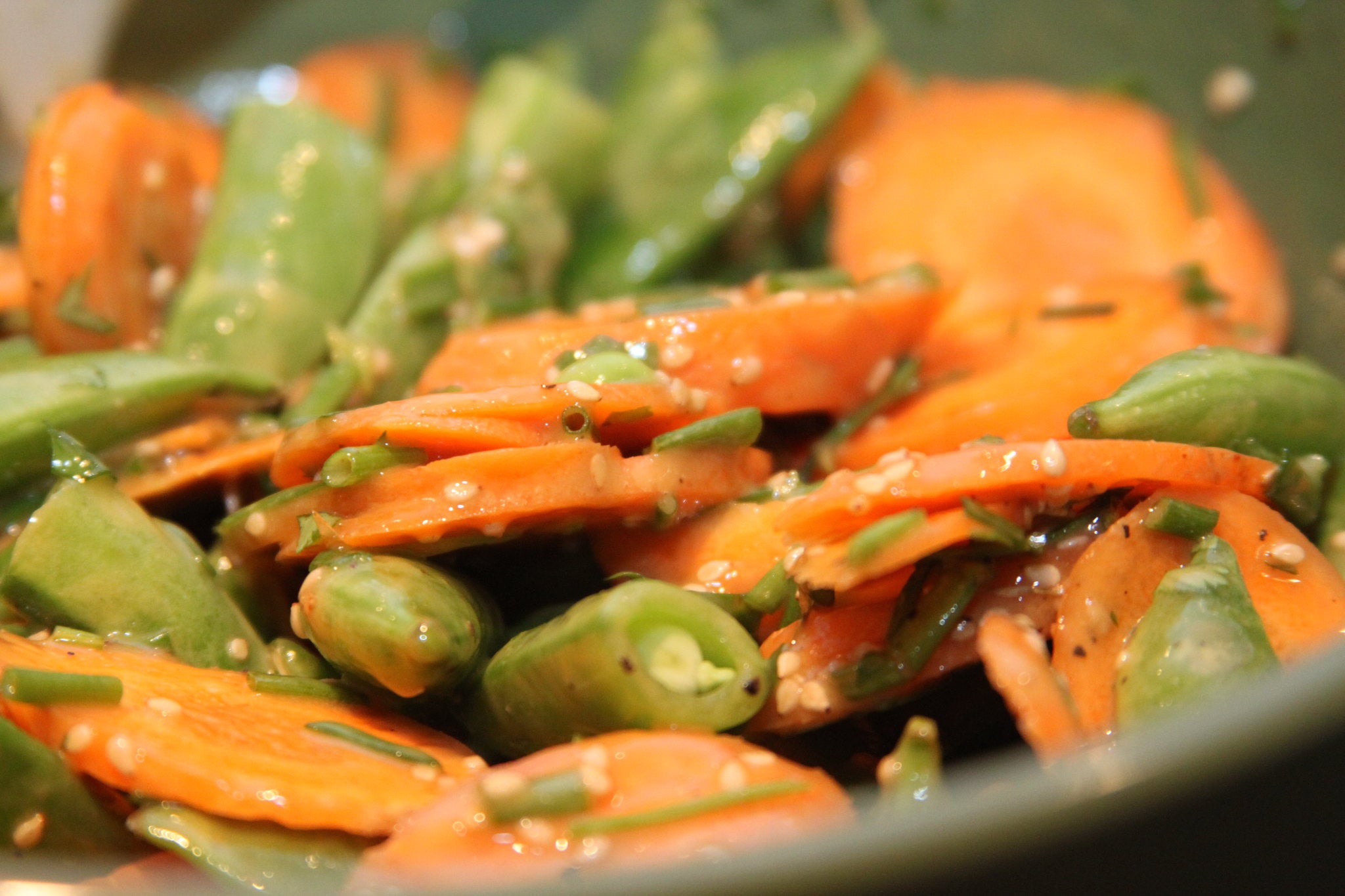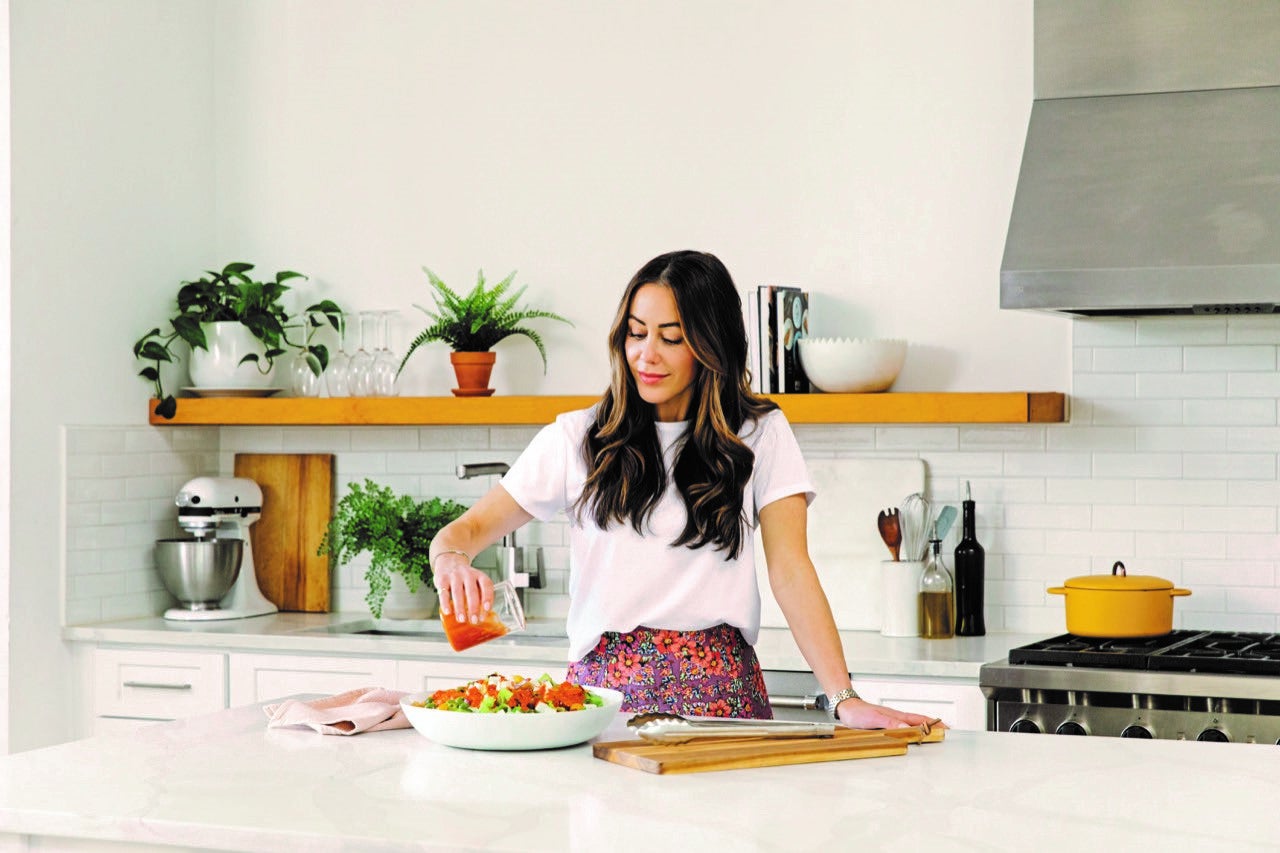In her new cookbook, “Zaitoun: Recipes from the Palestinian Kitchen,” activist and cook Yasmin Khan wants to tell the story of the people behind the food.
To write her book, Khan traveled through Palestinian kitchens in Israel, the West Bank and Gaza, gathering recipes and stories that celebrated the region’s unique cuisine and people.
“In a region that I think we can all safely say, you know, we more commonly associate with conflict, with human rights issues, food is just such a wonderful vehicle for discovery,” she said.
Stay informed on the latest news
Sign up for WPR’s email newsletter.
Along with discovery is familiarity, Khan said. In her travels, Khan discovered Palestinian cooking uses many familiar ingredients, just in a different way.
For example, allspice. Growing up in the United Kingdom, Khan recognized the spice in cakes, cookies and pies. In Palestinian cooking, it’s favored for savory dishes, often alongside cumin and cinnamon.
“(You) find it as a marinade for meat dishes or added to stews, or perhaps a pinch sprinkled onto a salad as part of the dressing,” Khan said. “It’s that kind of subtle, warming spice that really makes me think of Palestinian cuisine.”
Two spices that are important to Palestinian cooking, but less common in the Midwest, are za’atar and sumac.
Za’atar, an aromatic mix of a Middle Eastern herb that translates to a type of wild thyme though is closer to oregano or marjoram, is mixed with sumac and sesame seeds, Khan said.

Spinach and Feta Parcels. Photo courtesy of W.W. Norton & Company
“It’s a really common Palestinian condiment,” she said. “(Palestinians) would take bread, dunk it in olive oil and then tap it into the za’atar, and it makes for a lovely little snack before you truly have your main meal.”
Sumac comes from the sumac berry and is ground into a red powder and added to dishes for a touch of sharpness, she said.
Khan uses sumac to make Spinach and Feta Parcels, typically eaten as a snack in Palestine. The dough is made with yogurt and olive oil which gives it a touch of tang and a slightly fluffy consistency, she said.
“They’re really kind of homey and warming and when we’re looking forward towards the summer months, which are not quite there yet, they’re also really great picnic food,” she said.
One thing you will always find at a Palestinian table: a fresh salad to compliment the often rich stews, Khan said. Her Everyday Palestinian Salad combines cucumbers, tomatoes and peppers with lemon and fresh herbs.
“It sounds so simple but actually there’s something about the flavor combinations that just make it like an incredible simple salad,” she said.
Wisconsin Public Radio, © Copyright 2025, Board of Regents of the University of Wisconsin System and Wisconsin Educational Communications Board.





